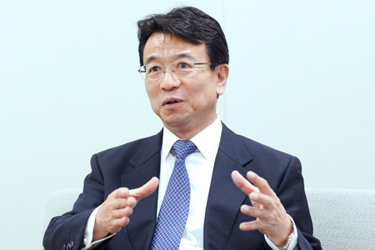Where Are They Now? Ono Pharmaceuticals

By Ben Comer, Chief Editor, Life Science Leader

Then: Ten years ago, my esteemed colleague Louis Garguilo, chief editor at Outsourced Pharma, interviewed Gyo Sagara, CEO of Ono Pharmaceuticals, in the Kansai region of Japan. His timing was auspicious; the company was weeks away from receiving approval for Opdivo (nivolumab), the first ever PD-1 inhibitor to receive regulatory approval anywhere in the world. Tasuku Honjo, a professor at Kyoto University, led the discovery work on Opdivo. Through Ono’s collaboration with Bristol Myers Squibb (BMS), beginning in 2011, Opdivo would eventually become a breakout cancer treatment and multi-blockbuster asset, as a stand-alone therapy and in combination with other oncology drugs. At the time of Garguilo’s interview, Sagara was optimistic that Opdivo would be able to treat multiple cancer types, including melanoma, non-small-cell lung cancer, and renal cell carcinoma, and that the product would “bring Ono international recognition and transform us into a true global pharmaceutical company.” Of the $1.4 billion in top line sales recorded by Ono in fiscal year (FY) 2013 (ending March 31, 2014), 98% came from the domestic market. Sagara spoke about his plans to “aggressively” push Ono’s medicines into Asia, as well as into European and U.S. markets, but admitted a lingering concern: “We still need more progress on what I call ‘accelerating to the speed of global competition.’”
Now: The PD-1/PDL-1 market topped $40 billion in 2023 and continues to grow, due in no small part to Opdivo; the product earned over $10 billion in global sales in 2023. Gyo Sagara, who correctly anticipated Opdivo’s potential for multiple cancer indications, continues to lead Ono Pharmaceuticals as CEO. But despite the success of Opdivo, the company hasn’t yet broken into the big leagues of global Big Pharma. Regardless of ongoing relationships with BMS, Pfizer, Gilead and other biopharmaceutical companies, Ono doesn’t have the name recognition or direct sales in the U.S. and Europe as its Big Pharma partners. In 2021, Tasuku Honjo – who won a Nobel Prize in Physiology or Medicine in 2018 for cancer research leading to the discovery of Opdivo – won a large settlement from Ono, which included establishing the Ono Pharmaceutical and Dr. Honjo Honorary Research Fund at Kyoto University. In its most recent corporate report, Ono doubled down on medium to long term plans to become a global specialty pharma, with increased direct sales in the U.S. and Europe. The company opened a new office in Cambridge, Massachusetts in 2021, and is working to establish marketing operations is Western countries to support “niche products that do not require large-scale sales organizations.” In the U.S., Ono plans to increase employee headcount from roughly 100 in FY 2022 to 160 in FY 2025, and to build out sales and marketing capabilities in Europe, adding to its 60 employees in Europe in FY 2022. Sagara notes in the report that Ono has 10 drugs in development that “could be successors for Opdvio, and [we] are aiming to have at least two or three of them on the market by FY 2031.” Given its foundational role in the creation of a new class of modern cancer immunotherapies, and the company’s active development programs, Ono Pharmaceuticals is a name Westerners are likely to hear more often in the future.
